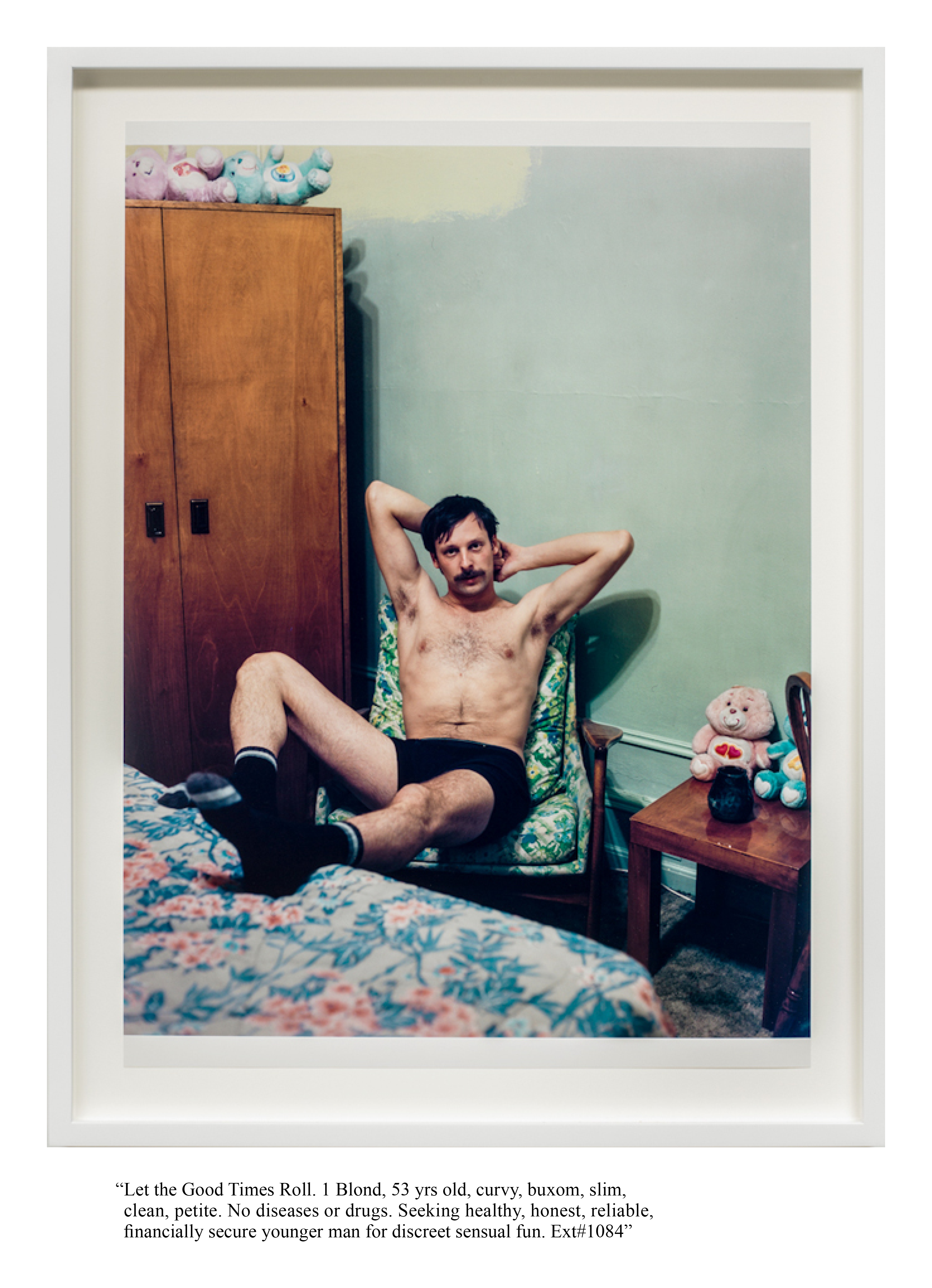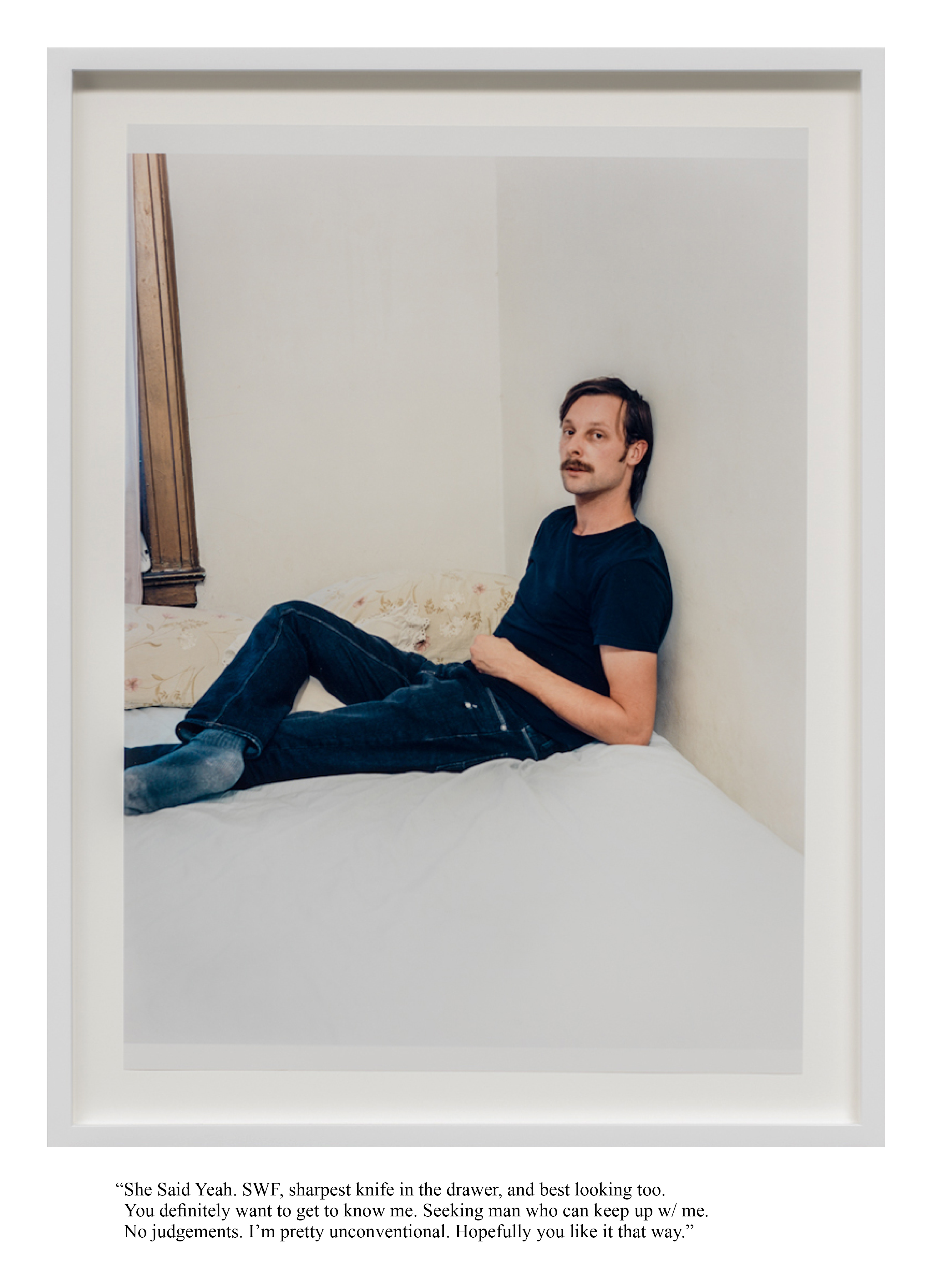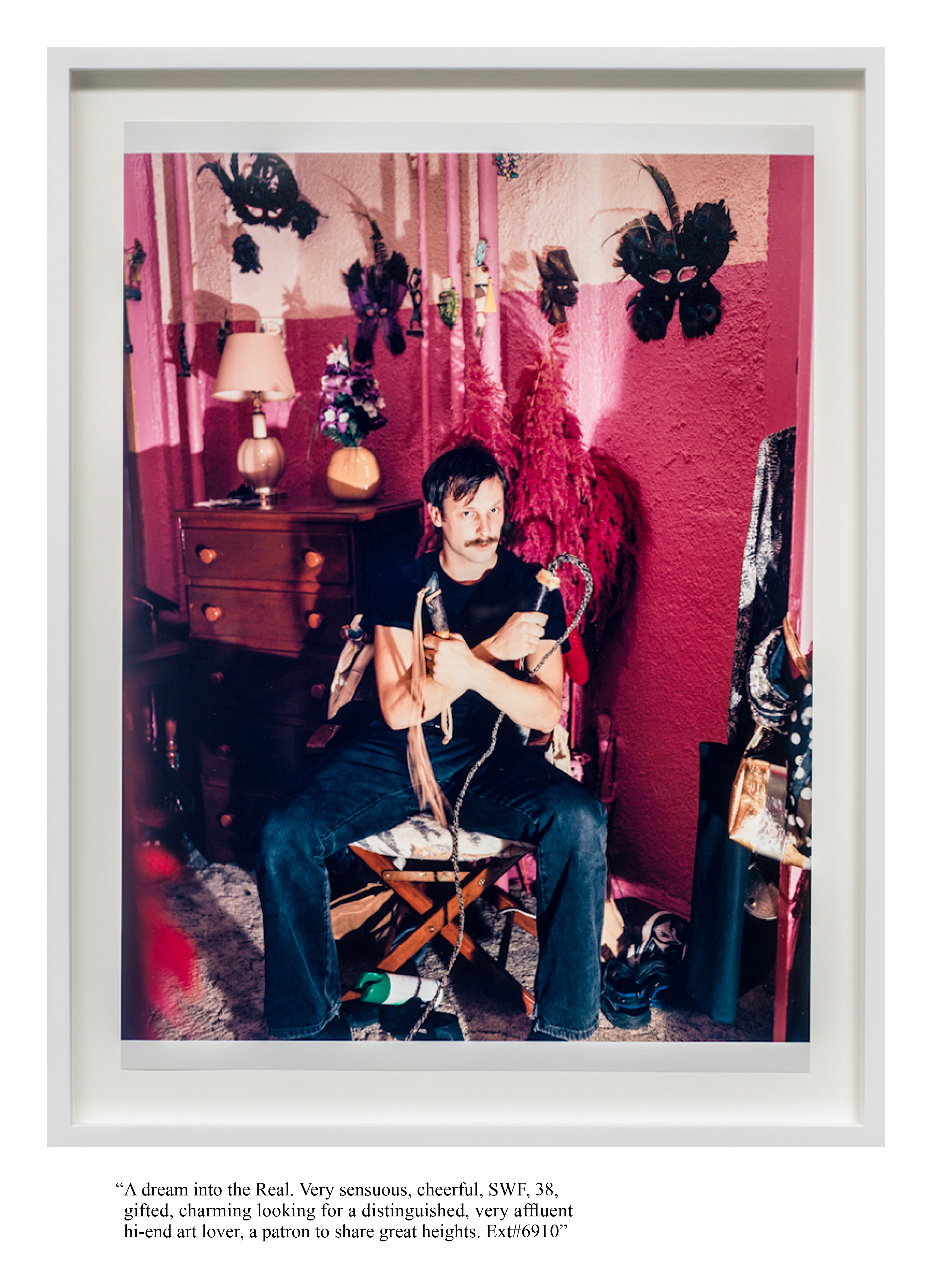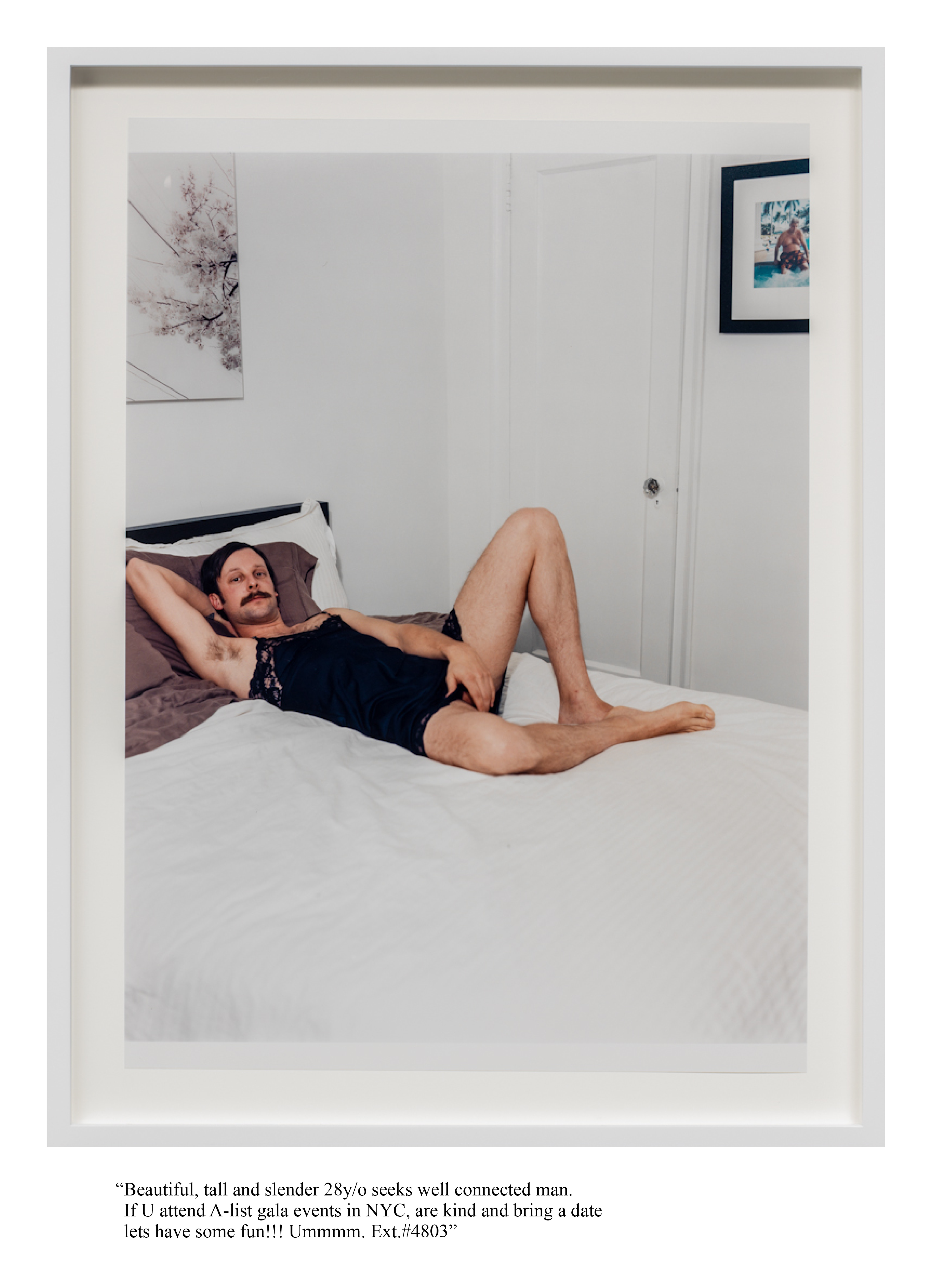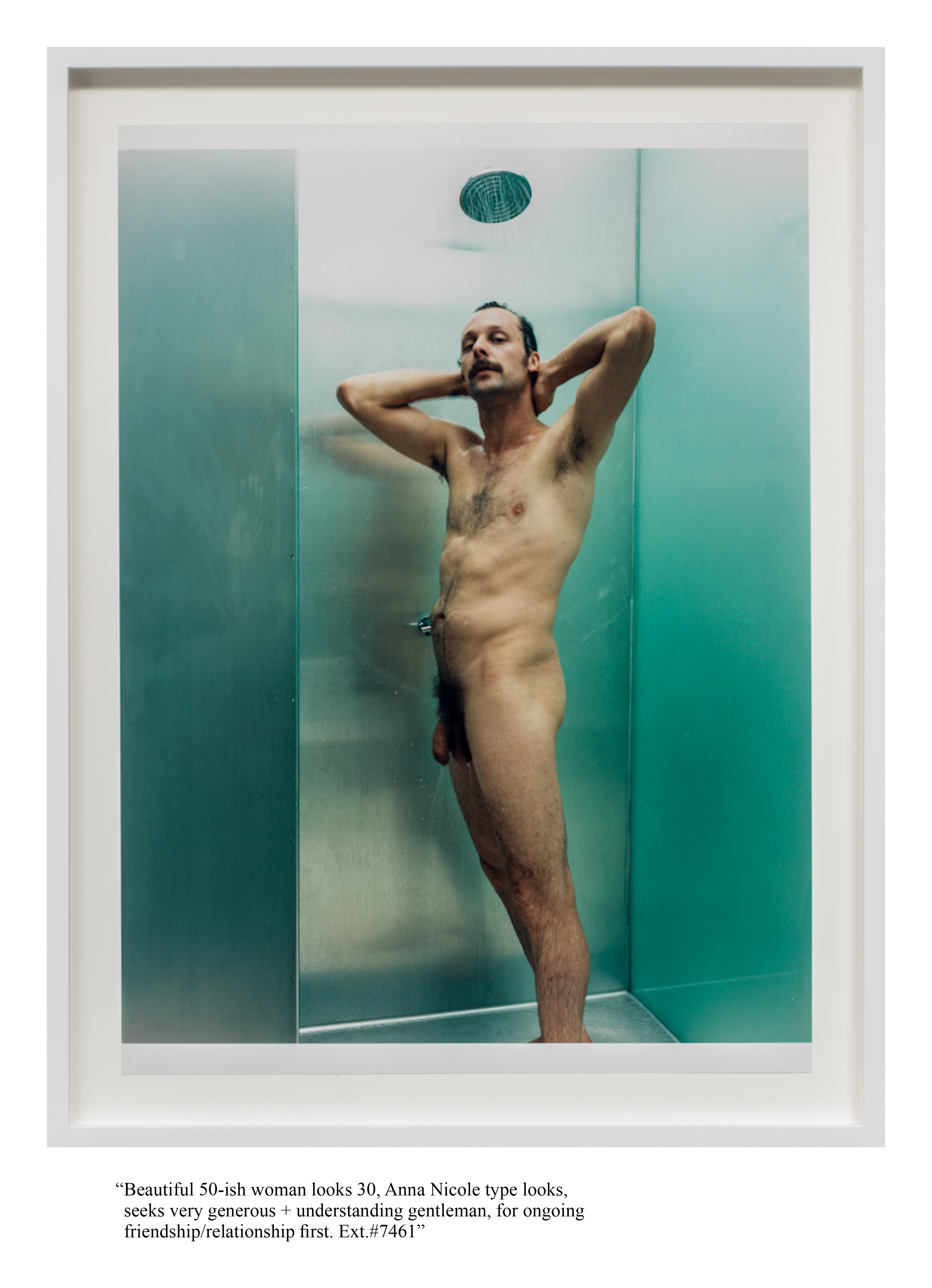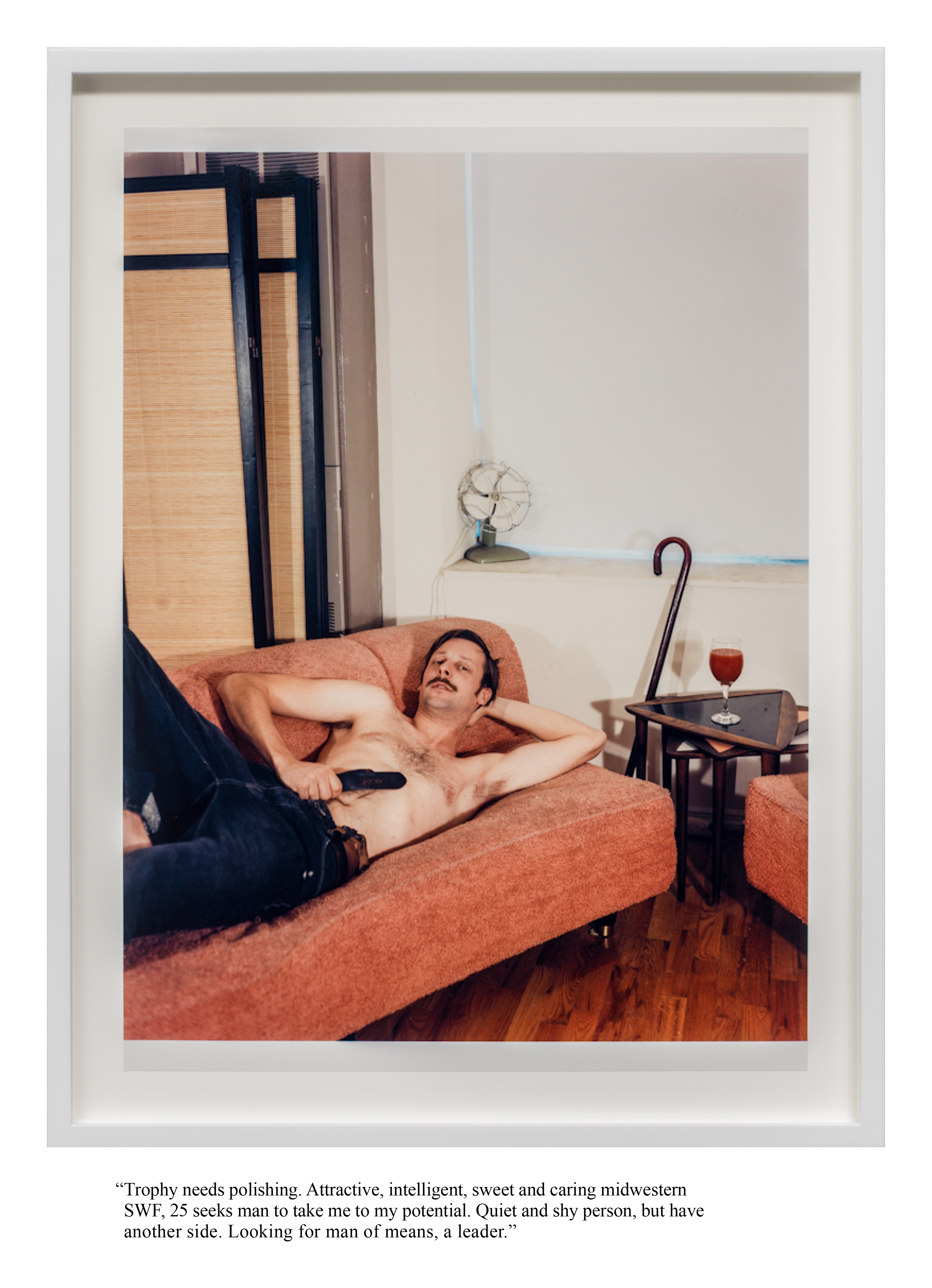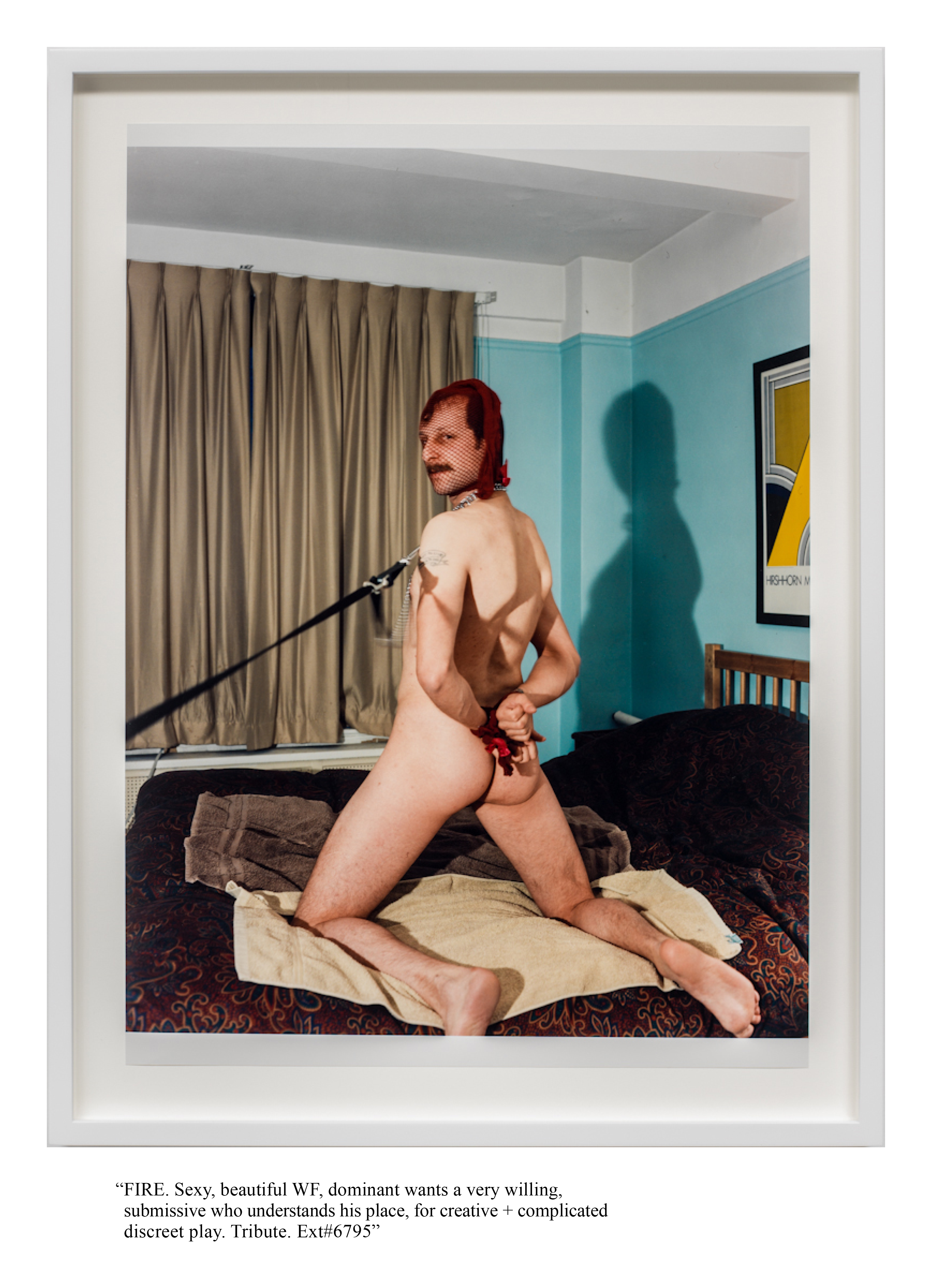Personal Commissions (2008)
Series of 10 Photographic C-prints, accompanying text
20” x 15” each
(Final text pending)
For the project Personal Commissions Ledare answered Women Seeking Men personal advertisements posted in various New York City newspapers. While primarily serving as a vehicle for seeking out companionship, these ads often referenced phrases such as “tribute”, which only thinly disguised the subjects’ participation within an underground economy of intimacy, sexual gratification and material validation. Clearly,economies such as these are driven by aspirational fantasies of class mobility or even romantic love, and often depend upon anonymity to preserve the charge of private desires upon which they draw.
Ledare’s interventions into this framework started by reconfiguring the expectations attributed to him as a male subject. While Ledare paid each of the women her asking fee (anywhere from $100-$300), rather than sleeping with the women, or capturing them on film, Ledare inverted the camera’s gaze. He started by redefining this payment as a commission fee, explaining to each of his subjects that it would be her job to direct a photograph of him inside her apartment, and that in doing so she could position him absolutely any way she desired—clothed, unclothed, etc... Foregrounding a female gaze, this reversal posed a false equivalence, one still caught up within the limitations and containments by which our society looks at sexuality and gender.
Echoing the anonymity of the original ads, the resulting images act not as portraits of Ledare, but rather as indirect portraits of the women who photographed him. This is registered vis-a-vis the women’s agency in directing Ledare, through the representations of the apartments in which they live, and through the point-of-sale self-descriptions that their original personal advertisements advance. The ads—in each instance displayed directly below the resulting photograph—act as the gateway into this economy, one which is classed and gendered. These ads are caught up as much in self-description as they are in anticipation of the male desires to which these women must play.
The Personal Commissions were made in direct response to Ledare’s work Pretend You’re Actually Alive, a project that focused on the dynamics within his family which hinged around his mother’s complex display of sexuality to a number of ends: to find a benefactor and companionship; to shield herself from the fact of her aging; not to mention as a means of negating her father’s expectations for how she should behave as a daughter, mother and woman of her age. Moreover, the women whose ads Ledare answered served as surrogates for his mother, vis-à-vis the personal ads she herself had avidly placed. This located her behavior inside a social field and a collective set of issues, where other women were responding to similar issues as her own.
Series of 10 Photographic C-prints, accompanying text
20” x 15” each
(Final text pending)
For the project Personal Commissions Ledare answered Women Seeking Men personal advertisements posted in various New York City newspapers. While primarily serving as a vehicle for seeking out companionship, these ads often referenced phrases such as “tribute”, which only thinly disguised the subjects’ participation within an underground economy of intimacy, sexual gratification and material validation. Clearly,economies such as these are driven by aspirational fantasies of class mobility or even romantic love, and often depend upon anonymity to preserve the charge of private desires upon which they draw.
Ledare’s interventions into this framework started by reconfiguring the expectations attributed to him as a male subject. While Ledare paid each of the women her asking fee (anywhere from $100-$300), rather than sleeping with the women, or capturing them on film, Ledare inverted the camera’s gaze. He started by redefining this payment as a commission fee, explaining to each of his subjects that it would be her job to direct a photograph of him inside her apartment, and that in doing so she could position him absolutely any way she desired—clothed, unclothed, etc... Foregrounding a female gaze, this reversal posed a false equivalence, one still caught up within the limitations and containments by which our society looks at sexuality and gender.
Echoing the anonymity of the original ads, the resulting images act not as portraits of Ledare, but rather as indirect portraits of the women who photographed him. This is registered vis-a-vis the women’s agency in directing Ledare, through the representations of the apartments in which they live, and through the point-of-sale self-descriptions that their original personal advertisements advance. The ads—in each instance displayed directly below the resulting photograph—act as the gateway into this economy, one which is classed and gendered. These ads are caught up as much in self-description as they are in anticipation of the male desires to which these women must play.
The Personal Commissions were made in direct response to Ledare’s work Pretend You’re Actually Alive, a project that focused on the dynamics within his family which hinged around his mother’s complex display of sexuality to a number of ends: to find a benefactor and companionship; to shield herself from the fact of her aging; not to mention as a means of negating her father’s expectations for how she should behave as a daughter, mother and woman of her age. Moreover, the women whose ads Ledare answered served as surrogates for his mother, vis-à-vis the personal ads she herself had avidly placed. This located her behavior inside a social field and a collective set of issues, where other women were responding to similar issues as her own.
